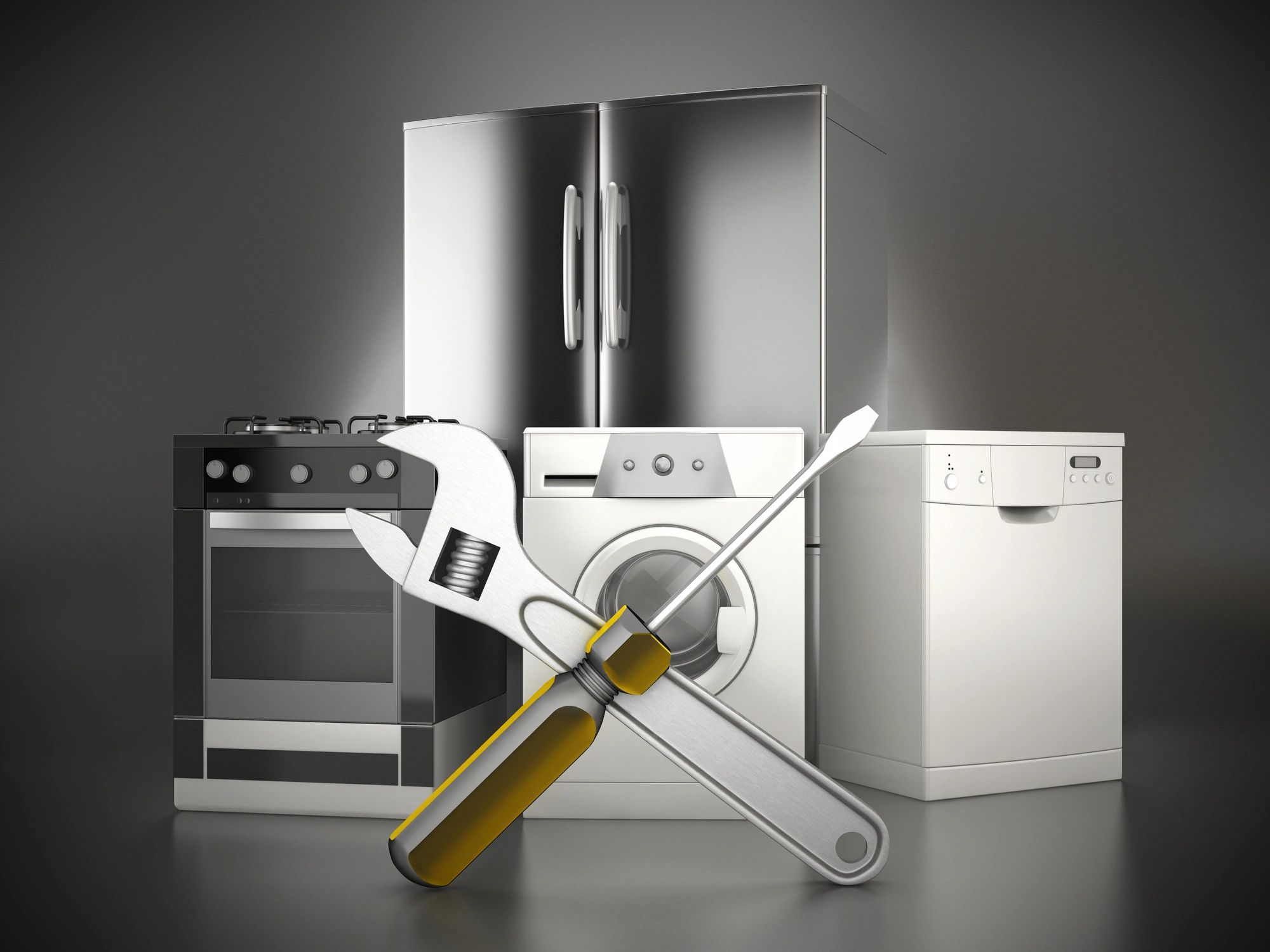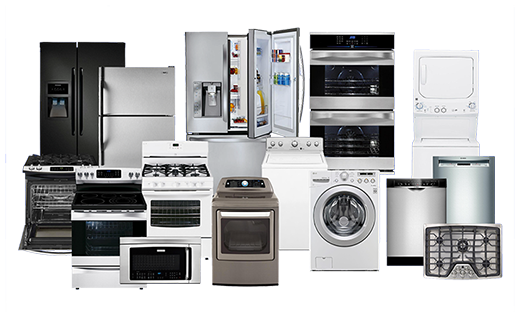The Ultimate Guide to Comprehending Appliance Fixing in your home
When your refrigerator quits cooling or your oven rejects to heat, it can really feel frustrating. Recognizing home appliance fixing in your home can save you money and time. You'll find out to acknowledge signs, make use of important tools, and comply with an organized troubleshooting procedure. Prior to you start, there are crucial safety and security preventative measures you need to take right into account. What are one of the most typical problems, and exactly how can you repair them? Let's check out the fundamentals.
Common Device Troubles and Their Symptoms
When your devices start breaking down, it's important to identify the indicators beforehand. Neglecting them can bring about bigger problems and costly repair services. For instance, if your refrigerator isn't cooling effectively, you may see warm places or condensation creating. This can suggest a stopping working compressor or an obstructed vent.Your dishwasher may show issues through dirty recipes or unusual noises throughout cycles. If you listen to grinding or clanking, it's time to investigate.A cleaning equipment that will not rotate or drain pipes can leave you with soaked laundry, recommending a clogged up drainpipe or a malfunctioning pump.Lastly, if your oven's temperature level appears off or it takes forever to pre-heat, you could be dealing with a malfunctioning thermostat. By remaining alert to these symptoms, you can deal with problems prior to they escalate right into major repair work.
Important Devices for Device Repair
When you're tackling device repair services in the house, having the right tools is necessary. Fundamental hand devices like screwdrivers and pliers will certainly aid you dismantle and fix various home appliances, while electrical testing gadgets assure you're functioning safely with circuitry. Let's look at what you need to obtain started on your repair work journey.
Standard Hand Tools
Having the right tools is vital for effective appliance fixing at home. Beginning with a trustworthy screwdriver set, including both flathead and Phillips kinds, as screws are typical in device assembly. Pliers are additionally vital; they assist with gripping, twisting, and cutting cables or tiny elements. A set of needle-nose pliers can get to difficult situations easily. You'll require a great flexible wrench for tightening or loosening up nuts and screws. An utility knife comes in handy for cutting through packaging or insulation. Don't neglect a durable workbench or surface area to safely organize your tools and parts. With these standard hand tools, you'll be well-prepared to take on most device repair work that come your method.
Electric Screening Instruments
Along with standard hand tools, electric testing devices play a crucial function in home appliance repair. These devices aid you detect electrical problems and guarantee devices work safely. A multimeter is essential; it gauges voltage, existing, and resistance, permitting you to pinpoint problems rapidly. A non-contact voltage tester is an additional must-have, letting you spot real-time cables without making straight contact, improving your safety. Secure meters are excellent for gauging current flow in wires without disconnecting them, conserving you time and initiative. Additionally, circuit testers can promptly examine if outlets are operating correctly. By utilizing these tools, you'll streamline your troubleshooting process and boost your fixing skills, making appliance maintenance a whole lot much easier.
Step-by-Step Guide to Diagnosing Home Appliance Issues
When your home appliance breaks down, it can be discouraging, yet detecting the concern doesn't need to be frustrating. You'll learn to recognize usual issues and use efficient troubleshooting strategies. Let's stroll with the steps to obtain your appliance back in functioning order.
Common Home Appliance Troubles

Troubleshooting Techniques Clarified

Fixing Major Cooking Area Home Appliances: A Closer Look
Have you ever before asked yourself how to tackle common issues with your kitchen appliances? Repairing major cooking area home appliances like fridges, ovens, and dishwashers can be less complicated than you believe. Begin by recognizing the trouble-- whether it's a refrigerator not cooling down or a stove that won't warm. Usually, a basic reset or inspecting the source of power can solve the issue.For refrigerators, tidy the condenser coils and check the door seals. If your oven's not heating, inspect the heating element and thermostat. Dish washers could simply require a clean filter or additional hints a reset to get them back at work. Constantly disconnect the device prior to diving right into repair work to ensure your safety.Don' t fail to remember to speak with the individual guidebook for specific fixing ideas connected to your model. With a little bit of perseverance and the right tools, you can confidently take on home appliance repair services and conserve money while doing so!

Troubleshooting Laundry Devices: Tips and Techniques
When your washing appliances start breaking down, it can really feel overwhelming, but troubleshooting them doesn't have to be a headache. Begin by inspecting the power supply. Verify the home appliance is connected in and the outlet is functioning. Next off, examine the door or cover switch; a defective switch can prevent the device from operating.For washing machines, if it's not spinning, inspect for out of balance loads. Redistributing the garments might resolve the issue. If your clothes dryer isn't home heating, tidy the lint filter and inspect the air vent for blockages.Listen for uncommon noises; they can show a problem. If your home appliance is leaking, examine the hose pipes for cracks or loosened links. Record any mistake codes presented on digital displays, as they can guide you in recognizing the problem. Get in touch with the user manual for specific fixing suggestions related to your design.
Safety Precautions to Take Throughout Repairs
Prior to you begin any type of device repairs, it's important to focus on safety and security to prevent mishaps or injuries. Initially, disconnect the home appliance or transform off the circuit breaker to assure no power reaches it while you work. Usage protected tools to lessen the danger of electrical shock. Use safety goggles and handwear covers to shield yourself from sharp sides or debris (Fixes washers and dryers Oro valley Dependable Appliance Repair).Make certain your work space is tidy and well-lit, so you can see what you're doing. Maintain children and family pets far from the location to avoid disturbances and possible dangers. If you're dealing with gas appliances, be extra cautious; check for leakages prior to proceeding.Take your time, and don't hurry with repairs. If you feel unpredictable concerning any type of action, it's much better to stop and study than to guess. Complying with these precautions will certainly help create a safer environment for your DIY device repair work task
When to Call a Specialist for Aid
Exactly how do you recognize if it's time to call in site web a professional for home appliance repair services? If you've tried basic troubleshooting without success, it's a clear indicator. For instance, if your appliance still will not start or shows uncommon sounds after resetting it, do not wait to seek professional help.When you observe leakages, smoke, or shedding smells, focus on safety and call a professional quickly. These problems can lead to more substantial damage or posture threats to your home.Also, if your home appliance is under warranty, contacting a specialist is frequently the very best course. They can guarantee that fixings will not void your service warranty, conserving you cash in the lengthy run.Finally, if you're not sure or unpleasant with intricate repair work, it's wise to leave it to the experts. Bear in mind, tackling complicated concerns without the ideal expertise can lead to expensive errors. Trust fund a professional when unsure!
Often Asked Questions
Exactly How Can I Prevent Device Troubles in the Future?
To avoid device issues in the future, you must execute routine maintenance, look for damage, clean filters, and avoid overloading. Staying aggressive will aid extend their life expectancy and keep them running smoothly.
What Are the A Lot Of Typical DIY Home Appliance Fixing Mistakes?
You might ignore security preventative measures, skip troubleshooting actions, or use wrong devices when trying do it yourself device repairs. Rushing the procedure or overlooking manufacturer standards can cause more substantial issues and costly mistakes. Stay individual and notified!
Exactly how Do I Know if a Part Demands Replacement?
You can inform if a component requires substitute by examining for uncommon noises, leaks, or inconsistent efficiency. If the device struggles to operate correctly or shows noticeable damage, it's most likely time for a substitute.
Can I Use Generic Components for Home Appliance Services?
Yes, you can use generic components for appliance repair work, yet ascertain they work - Dependable Refrigeration & Appliance Repair Service Washing Machine Repair. Common components might save you money, however they might affect performance or durability, so weigh your choices very carefully before making a decision
What Warranties Cover Appliance Repair Works?
A lot of appliance warranties cover fixings for making flaws, yet they often leave out damage from misuse. Inspect your guarantee terms very carefully, as some may need using certified technicians and initial components for coverage to stay legitimate.